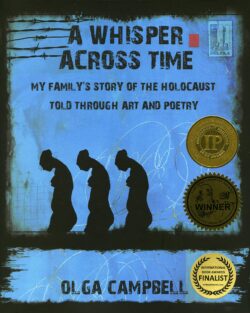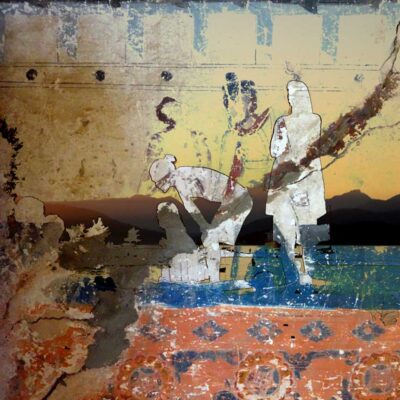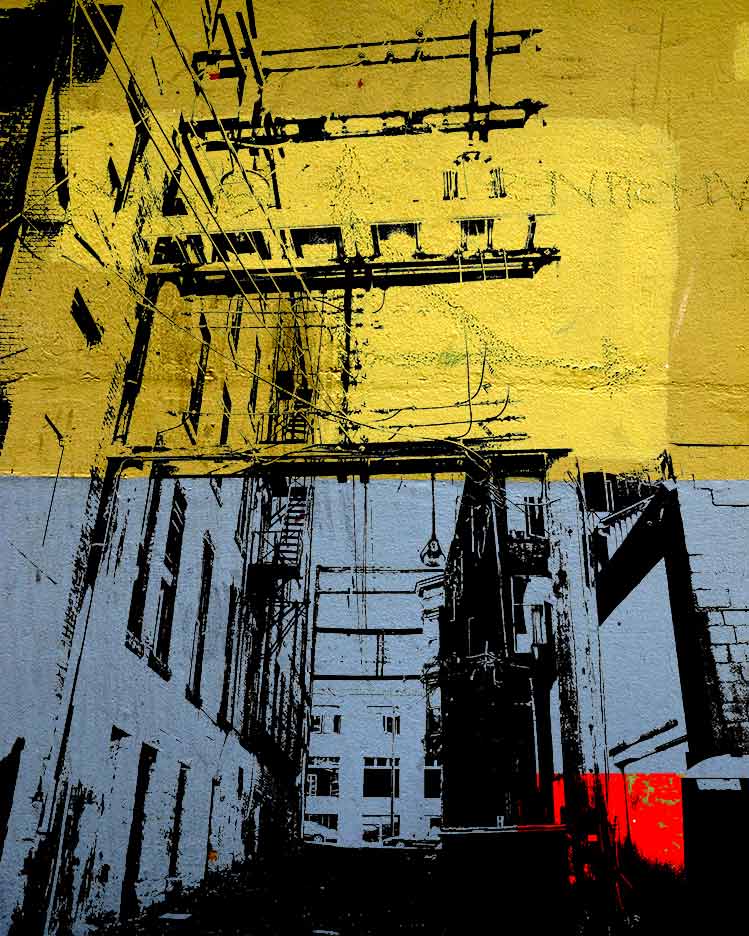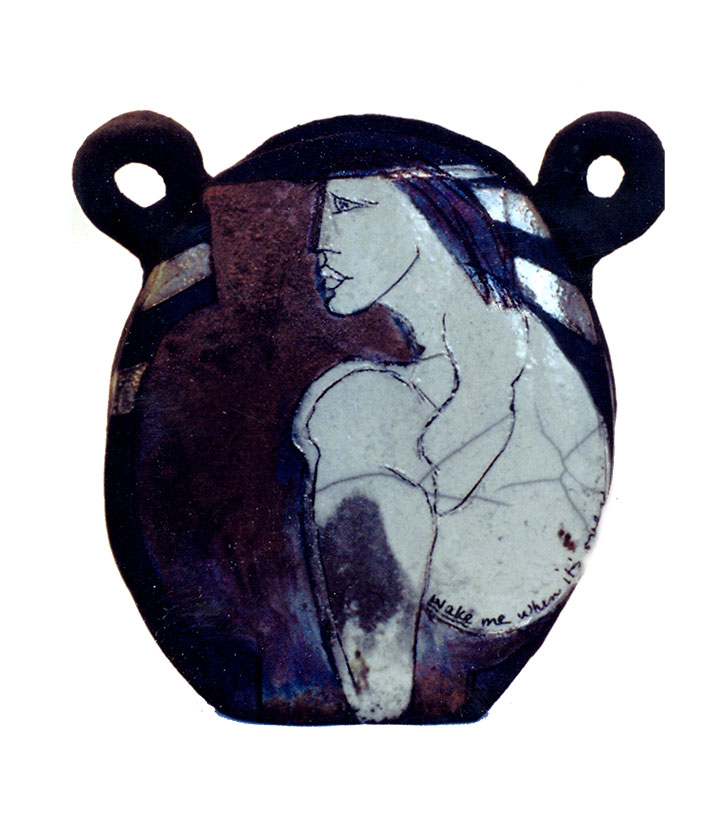1072 Healing through creativity
A Whisper Across Time: My Family’s Story of the Holocaust told through Art & Poetry
by Olga Campbell
Vancouver: Jubaji Press, 2018, distributed by Red Toque Books. To purchase see here
$31.95 / 9780981291123
Reviewed by Claire Sicherman
*
 I first met visual artist and author Olga Campbell in 2019 at Vancouver’s Jewish Community Centre, where we were discussing, along with child survivor and author Lillian Boraks-Nemetz, our upcoming panel at the World Federation of Jewish Child Survivors of the Holocaust & Descendants. Both Campbell and Boraks-Nemetz had gifted me copies of their new books and I was beyond delighted to receive them. Campbell has this soft presence about her, this warmth that made me feel immediately safe, which is a gift for my hypervigilant nervous system. Hypervigilant because I’m a third-generation Holocaust survivor and Campbell is second generation. We both write about the lingering effects of genocide, intergenerational trauma and the legacy of grief.
I first met visual artist and author Olga Campbell in 2019 at Vancouver’s Jewish Community Centre, where we were discussing, along with child survivor and author Lillian Boraks-Nemetz, our upcoming panel at the World Federation of Jewish Child Survivors of the Holocaust & Descendants. Both Campbell and Boraks-Nemetz had gifted me copies of their new books and I was beyond delighted to receive them. Campbell has this soft presence about her, this warmth that made me feel immediately safe, which is a gift for my hypervigilant nervous system. Hypervigilant because I’m a third-generation Holocaust survivor and Campbell is second generation. We both write about the lingering effects of genocide, intergenerational trauma and the legacy of grief.

Campbell is someone who understands deeply the heaviness, the anger, and grief I feel in my body, because for most of her life, she felt the same way. Both her parents had survived the Holocaust. Her mother was the sole surviving member of her side of the family. At first Campbell didn’t know what to do with these feelings, so she ignored them.
“I pushed the feelings down. Every time I made a wish, it was to be happy, to feel a lightness of being, and to feel connected to family and friends,” she said.
In 2005, Campbell’s artwork was exhibited at Vancouver’s Sidney and Gertrude Zack Gallery, a show that Campbell says was a tribute to her family, a way of giving them a voice. Yet despite the show being a great success, Campbell could sense she wasn’t finished telling her family’s story. She continued with her meditation and art practices, and sought support from psychiatrist and child survivor, Dr. Robert Krell, for the feelings she was having, which she described as intense.

“It was as if I had been sitting on a volcano all my life, and it had erupted. I had no choice but to deal with them,” Campbell said.
Research has shown that it’s the stories that are not talked about in families that wield the most power and carry the most strength intergenerationally. In other words, it’s the silencing of family stories that affects us the most. Campbell’s parents didn’t speak of their experiences in the Holocaust. Instead, the stories of her family remained stuck in her body and she felt haunted by the cries that echoed through her. Campbell said she could feel her ancestors whispering to her, encouraging her to write the book.
“I could feel my family wanting me to write their story because of what was going on in the world at the time,” she said.
Using art, poetry and prose, A Whisper Across Time tells the story of Campbell’s family during the Holocaust, how trauma is passed down through generations, and the importance of breaking the cycle to prevent this trauma from extending to future generations. The art included in the book is a mix of photography, sculpture, mixed media painting and digital photo collage, much of it a powerful reminder of the horrors of genocide. For Campbell, the often-fragmented pieces, and the way they contrast with each other, echo the themes of presence and absence, past and present, and loss and regeneration.

In writing the book, Campbell said she realized her mother had lived her life in a prison of guilt and sorrow. The grief that her mother carried was passed down to Campbell and weighed her down so much that she said at times she could barely walk:
I thought that my sadness
was caused by her death
I had no idea
that it was caused by her life
Yet Campbell reminds us that despite all the loss, there is also hope. It was her mother’s prison of grief that Campbell realized she must free herself from, that it was essential for her to deal with the trauma in order to break the cycle. With the support of her ancestors and family, Campbell chose to face this legacy of trauma, to feel the anger and sorrow through making art and living life. The art at the end of the book reflects this hope through lighter images, a dove symbolizing peace and a single pink rose bud, which Campbell writes is a promise of things to come. Although it’s not possible to change the past, Campbell says we can choose not to pass down our trauma to future generations:

I am not
doing
this
alone
it is a
collaboration
of
the past
present
and future
neutralizing
transforming
the pain
and
sorrow
into an
expression
of love
Toward the end of A Whisper Across Time, Campbell speaks to the importance of remembering not only the Holocaust but other atrocities too, and not to forget about refugees, asylum seekers and internally displaced people, to stand up against racism, anti-Semitism and the rise of ultra-nationalism:
eighty years ago the world looked
away
We must not look away now


It is Campbell’s hope that the young people of today will bring about what she calls “a more thoughtful, peaceful and loving world.”
In November 2019, Campbell had another solo exhibit at the Sidney and Gertrude Zack Gallery, which coincided with the launch of her book. When I asked Campbell whether she felt differently after writing the book, she said the intense emotions she was experiencing went away the moment she sat down to write:
Since 2016, I have not had any feelings of grief, sorrow, loss, heaviness or feelings of being burdened. I feel that by writing this book I was able to give my family a voice and free them (in a way), and by doing that free myself. The burden, the heaviness went away. All my life I wished for a lightness of being. And now I have it.
Campbell continues to make art, but for the first time in her life she’s not working with a particular theme. The pieces are abstracts and she is working with technique, design, colour and texture. “I probably will have themes in the future, but these pieces were made in a workshop where I was learning technique,” she says.
Campbell said that although she can’t predict the future, she has been feeling liberated for almost five years now. She attributes much of her healing to meditation and art making, the latter which she calls “a great vehicle for expressing feelings.”
I don’t think that there is a road map or formula. We are all different. And it’s a process. But I really believe that those feelings can be healed.
For more about Campbell, visit her website here.
*

Claire Sicherman is the author of Imprint: A Memoir of Trauma in the Third Generation (Caitlin Press 2018), reviewed here by Mark Dwor. Her writing has appeared in publications including Entropy, The Rumpus, and the anthology Sustenance: Writers from BC and Beyond on the Subject of Food, reviewed here by Alan Belk. Claire speaks and writes about her experience as a third-generation Holocaust survivor and facilitates workshops supporting writers in bringing the stories they hold in their bodies out onto the page. Editor’s note: Claire Sicherman has reviewed books by Michelle van der Merwe and Erín Moure for The Ormsby Review.
*
The Ormsby Review. More Books. More Reviews. More Often.
Publisher and Editor: Richard Mackie
The Ormsby Review is a journal service for in-depth coverage of B.C. books and authors. The Advisory Board consists of Jean Barman, Wade Davis, Robin Fisher, Cole Harris, Hugh Johnston, Patricia Roy, David Stouck, Maria Tippett, and Graeme Wynn. Scholarly Patron: SFU Graduate Liberal Studies. Honorary Patron: Yosef Wosk. Provincial Government Patron since September 2018: Creative BC
“Only connect.” – E.M. Forster

One comment on “1072 Healing through creativity”